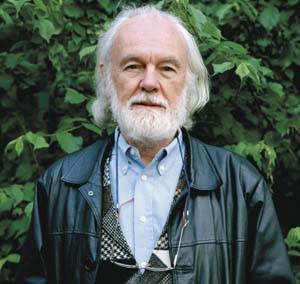According to Bernard Williams, Rene Descartes's [i]Meditations on First Philosophy[/i], which narrates, in the first person, the passage from radical doubt to possible knowledge, is "not a description but an enactment of philosophical thought". One could say the same about the book in which Williams makes this observation. Descartes The Project of Pure Enquiry, first published in 1978 and repackaged here with a foreword by the Cartesian scholar John Cottingham, is a good deal more than just a survey of one of the landmarks in the history of philosophy. It is itself a work of substantive philosophical analysis and a reminder of just what British philosophy lost when Williams died in 2003.
Williams distinguishes the 'history of philosophy', which is what he professes to be doing here, from the 'history of ideas'. The history of ideas, in Williams's view, aims at accuracy and authenticity, and proceeds by the scrupulous sifting of sources and the careful establishing of context. In the history of philosophy, by contrast, there is a "cutoff point" at which "authenticity is replaced as the objective by the aim of articulating philosophical ideas". And the central philosophical idea articulated here is that of an "absolute conception of reality" a conception of the world as it really is, independent of particular (human) representations of it.
In taking this absolute conception of reality, together with the mode of 'pure enquiry' through which it is supposed to be achieved, to be central in Descartes's thought, Williams is offering an alternative to a longestablished and wellentrenched interpretation. In the traditional picture, Descartes is seen as the inventor of epistemology, leaving behind him a welldefined set of problems having to do with selfknowledge and scepticism about the external world. But Williams reminds us that the pure enquiry undertaken in the Meditations was in fact regarded by Descartes himself as a kind of prolegomenon to a much more wideranging scientific enterprise intended to "confer practical benefits on mankind".
Philosophy, for Descartes, is the search for the truth, and the truth is to be attained by adopting the method of pure enquiry. In the Meditations, this takes the form of the famous 'Method of Doubt', in which our beliefs are to be doubted systematically until such time as we arrive at something that cannot be doubted, namely, the cogito or 'I think'. The perspective of the philosophical enquirer is pure because it requires, on Williams's account, that "all strategic considerations [be] laid aside except those internal to enquiry and the search for truth".
What is most distinctive about Williams's interpretation is the suggestion that this method of pure enquiry is the means for achieving an absolute conception of the world and, therewith, for proving that knowledge is possible. But Williams's intentions here are not merely interpretative he wants to use his reading of Descartes to advance an independent philosophical thesis about the indispensability of such a conception. The thought that the very possibility of knowledge entails the absolute conception is not ostensibly Descartes's at least, its terms are not Cartesian but it emerges from and is framed by a close examination of Descartes's aims and method.
Williams starts from the premise that, by definition, knowledge is of "what there is anyway". In other words, knowledge is always of a reality that exists independently of knowers and perceivers. He asks us to consider A and B, both of whom lay claim to some knowledge of the world, even though their representations of it differ. In order, Williams argues, to explain how these differing representations are perspectives on the same reality, we need a conception of the world which contains A and B and their representations an absolute conception in other words. And if we are unable to form such a conception, then we cannot be said to know the reality that is there 'anyway'.
Now, the problem with Descartes's attempt to derive such an absolute conception from the method of pure enquiry is that it is essentially religious. It is God's creative power and benevolence that is supposed to make possible the journey back from scepticism and selfknowledge to knowledge of the world. But if, as Williams does, one finds Descartes's proofs for God's existence wanting, then we are left with scepticism and idealism, and not knowledge of the world as it really is. However, the failure of these theological arguments does not, in Williams's view, settle the question of whether an absolute conception of the world is presupposed by the concept of knowledge itself, nor indeed whether we could sustain such a conception in the absence of divine guarantee.
Descartes - the Project of Pure Enquiry is available from Amazon (UK)

